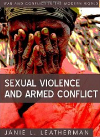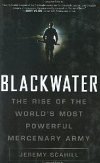Recommendations
More recommendations
-

Three guineas
Virginia Woolf. Tres guinees. Barcelona: Institut Català Internacional per la Pau; Angle, 2011
The renowned literary author Virginia Woolf decided to write a pamphlet against militarist fascism as a way of taking action against prevailing opinion, in the context of the Spanish civil war and in view of the threat of another war in Europe that was soon to begin.
Tres guineas (1938) is an essay on women's contribution to peacekeeping. The text is written from the privileged vantage point of the outsider; the outsider who has been deprived of participation in the male spheres of power, wealth and prestige, who is able to observe them from the outside and understand their connections with war. For the author, the outsider's position is therefore a source of freedom that women can creatively bring into play in order to contribute to peace.
E.G.
-

A hidden crisis
Education for All Global Monitoring Report 2011: 'A hidden crisis: armed conflicts and education'
http://www.unescocat.orgThe UNESCO Education Monitoring annual report this year focuses on the direct relationship between armed conflicts in the literacy of the population and is based on a revealing statistic: in poor countries plagued by armed conflicts, 28 million children do not attend school, a figure which amounts to 42% of the world's children who do not receive an education.
The report notes that violent conflicts exacerbate poverty and increase economic disparities and gender inequalities, and shift public funds away from education and towards military expenditure. This is an obstacle to achieving the goals of Education for All goals set in Dakar (Senegal) in 2000 and indeed, UNESCO predicts that most of the milestones will not be achieved on time, in 2015, because governments are not meeting their commitments. The report therefore calls for more determination among the international community, especially in the humanitarian aid system: if the rich countries assigned the equivalent to six days of their military expenditure to development linked to basic education, they could cover the deficit of 16,000 million dollars required to achieve universal primary education every year. It is basically a matter of priorities.
E.R.
-

Sexual violence and Armed Conflict
Janie L. Leatherman. Sexual violence and Armed Conflict. Cambridge: Polity Press, 2011.
Sexual violence in times of war and peace is one of the biggest taboos. However, given its prevalence, it needs to be analysed, explained, understood and remedied.
This book examines the functions and effects of sexual violence in wartime as part of a global political economy of violence. According to the author, one of the most troubling aspects of militarised globalisation is the use of sexual violence in contemporary armed conflicts as a weapon to destroy reproductive economies and to benefit from looting. The book also analyses the role of patriarchy and militarised masculinity within a framework of plunder and profiteering, in order to understand the motivations of men (and sometimes the women) who perpetrate violence.
Janie L. Leatherman says the remedies must address the root causes of gender inequality and gender-based violence, within communities throughout the world, in order to transform both its direct and structural causes. This requires a dismantling of the aggressive foundations of the social construction of hegemonic masculinity, and the promotion of a leadership that cares for the community instead of exploiting it.
The book concludes by seeking strategies for prevention and protection and an ethic of care, in order to support survivors' rehabilitation and their reintegration into their families and community life.
E.G.
-

Blackwater
Jeremy Scahill. Blackwater: the rise of the world's most powerful mercenary army. Nation Books, 2007.
Mercenaries are in Iraq and wherever else they are needed, such as in New Orleans; they come from the United States and from wherever else they can be recruited, such as Pinochet's Chile.
What is Blackwater? It is the transformation of military combat forces into a profit-making venture. It is also a private army controlled by a single person: Erik Prince, an ultra-conservative Christian billionaire.
How important is it? Blackwater has the capacity to overthrow many governments in the world today. It is the U.S.A.'s most important partner in Iraq, with more troops than the total forces deployed by Britain in the Arab country. What rules do they follow? Private security companies are virtually unaccountable to the public, from whom they make their profits. Blackwater has openly declared that its forces are above the law.
In this book, Jeremy Scahill, a correspondent for The Nation and Democracy Now! discusses Blackwater's development since it was established in 1996. In other words, this is the past and present, but also the future of the military-industrial complex. By doing so, he helps us to unravel the relationships between war, democracy and our governments. This is investigative journalism in its purest form, and is also very well written. It is a terrifying story. And the worst thing is that it is true.
J.A.